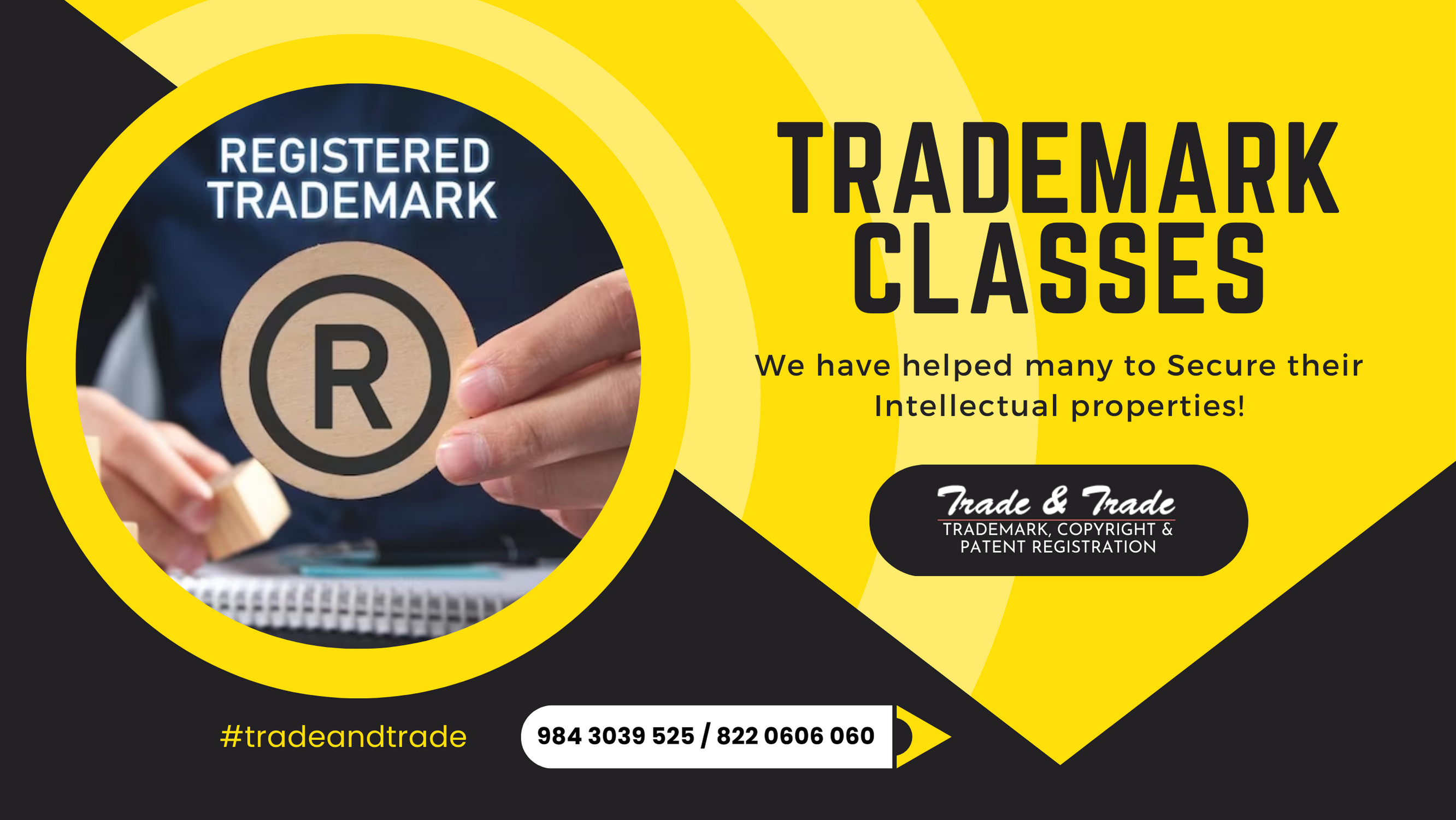
Define Trademark Classes
Trademark classes are categories used to classify goods and services in the trademark registration process. There are 45 classes in total, with each class covering a specific type of goods or services. The classes were established by the World Intellectual Property Organization (WIPO) and are used internationally.
The classification system helps to ensure that trademarks are properly registered and that similar trademarks are not registered for the same or similar goods or services. This helps to prevent confusion among consumers and protects the trademark owner’s rights in their trademark. To know all about trademark and ISO-related queries contact Trade & Trade Tirupur and Coimbatore.
Examples of the class covering over 25 categories of business service and advertising theory are clothing, footwear, headgear, and so on. If a company wants to register a trademark for a line of clothing, it would apply for registration in Class 25, while a company offering advertising services would apply for registration in Class 35.
Types of Trademark Classes In India
In India, the trademark class system is based on the International Classification of Goods and Services (ICGS), which is established by the World Intellectual Property Organization (WIPO). There are 45 classes in total, with each class covering a specific category of goods or services.
The Indian trademark office, the Controller General of Patents, Designs, and Trademarks, recognizes the following 45 classes:
- Chemicals
- Paints
- Cosmetics and cleaning preparations
- Lubricants and fuels
- Pharmaceuticals
- Metal goods
- Machinery
- Hand tools
- Scientific, nautical, surveying, photographic, cinematographic, optical, weighing, measuring, signaling, checking (supervision), life-saving, and teaching apparatus and instruments
- Medical apparatus and instruments
- Environmental control apparatus
- Vehicles
- Firearms
- Precious metals and their alloys
- Musical instruments
- Paper goods and printed matter
- Rubber goods
- Leather goods
- Building materials (non-metallic)
- Furniture and articles not otherwise classified
- Containers and utensils for the kitchen or household goods
- Ropes, string, nets, tents, awnings, tarpaulins, sails, sacks, and bags
- Yarns and threads
- Textiles and textile goods
- Clothing, footwear, headgear
- Lace and embroidery, ribbons and braid; buttons, hooks, eyes, pins, and needles; artificial flowers
- Games and playthings; gymnastic and sporting articles not included in other classes
- Meat, fish, poultry, and game; meat extracts; preserved, frozen, dried, and cooked fruits and vegetables; jellies, jams, compotes; eggs, milk, and milk products; edible oils and fats
- Staple foods
- Natural agricultural products
- Light beverages
- Alcoholic beverages (except beers)
- Tobacco and smokers’ articles
- Advertising and business services
- Insurance and financial services
- Building construction and repair services
- Telecommunications services
- Trave; arrangements like transport, packaging, and storage of goods and services/
- Treatment of materials
- Education and entertainment services
- Scientific and technological services and research and design relating thereto; industrial analysis and research services; design and development of computer hardware and software
- Services for providing food and drink; temporary accommodation
- Medical services
- Personal and social services rendered by others to meet the needs of individuals
When a person or company applies for trademark registration in India, they must specify the goods or services they wish to protect and the class or classes in which they wish to register their trademark. This helps to ensure that similar trademarks are not registered for the same or similar goods or services and helps to prevent consumer confusion
This blog would have given you the details about the Trademark classes in details. To get your trademark registered get in touch with Trade & Trade (Coimbatore and Tirupur) making your process work online.


